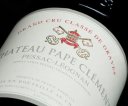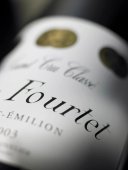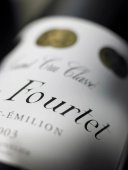Château Brane-Cantenac
Château Brane-Cantenac 2018 12000mL 2018
96 points$3,230 eachTypical priceChâteau Brane-Cantenac 2018 6000mL 2018
96 points$1,617 eachTypical priceChâteau Brane Cantenac 2018
$221 eachin cases of 6 for $1,326Price consistently high
Château Pape Clément Pape Clément Rouge
Château Pape Clément Pape Clément Rouge 2017
96 points$233 eachin cases of 6 for $1,398Price consistently lowChâteau Pape Clément Pape Clément Rouge 2016
$280 eachin cases of 6 for $1,680Typical priceChâteau Pape Clément Pape Clément Rouge 2016 6000mL 2016
98 points$2,855 eachPrice consistently highChâteau Pape Clément Pape Clément Rouge 2016 9000mL 2016
98 points$4,240 eachPrice consistently highChâteau Pape Clément Pape Clément Rouge 2016 15000mL 2016
98 points$7,174 eachPrice consistently high
Château Langoa Barton
Château Langoa Barton 2018
$144 eachin cases of 6 for $864Typical price
Clinet
Clinet 2021
$251 eachin cases of 6 for $1,506Price consistently lowClinet 2002 5000ml
100 points$1,960 eachPrice consistently lowClinet 2014 1500mL 2014
$630 eachTypical priceClinet 2006 18000ml 2006
$8,478 eachTypical priceClinet 2018 1500mL 2018
$728 eachPrice consistently highClinet 2019 1500mL 2019
$778 eachPrice consistently highClinet 2009 1500mL 2009
$1,878 eachPrice consistently high
Lassegue
Lassegue 2014 1500mL 2014
$161 eachin groups of 3 for $483Price consistently lowLassegue 2021
$77.00 eachin cases of 6 for $462Price consistently low
Duhart-Milon
Duhart Milon 2018
$247 eachin cases of 6 for $1,482Typical priceDuhart Milon 2020
95 points$247 eachin cases of 6 for $1,482Typical priceDuhart Milon 2016
$273 eachin cases of 6 for $1,638Price consistently highDuhart Milon 2015
$284 eachPrice consistently highDuhart Milon 2002
90 points$284 eachPrice consistently highDuhart Milon 2004
$284 eachPrice consistently high
Clos Fourtet
Clos Fourtet 2021
95 points$295 eachTypical priceClos Fourtet 2020
$325 eachPrice consistently high
Vray Croix de Gay
Vray Croix de Gay 2019
$176 eachin cases of 6 for $1,056Price consistently lowVray Croix de Gay 2021
$175 eachin cases of 6 for $1,050Price consistently lowVray Croix de Gay 2018
$192 eachin cases of 6 for $1,152Price consistently high
Croix Ducru Beaucaillou
Croix Ducru Beaucaillou 2021
$125 eachin cases of 6 for $750Price consistently lowCroix Ducru Beaucaillou 2011
$133 eachin cases of 12 for $1,596Typical priceCroix Ducru Beaucaillou 2016
$172 eachin cases of 6 for $1,032Price consistently high
Gruaud Larose
Gruaud Larose 2019 6000ml 2019
$1,895$1,797 eachBargainGruaud Larose 2020 6000mL 2020
$1,797 eachBargainGruaud Larose 2019 1500mL 2019
$491$470 eachFurther price dropGruaud Larose 2020 1500mL 2020
$470 eachPrice dropGruaud Larose 2020 3000mL 2020
$930 eachPrice consistently lowGruaud Larose 2020
$236 eachin cases of 6 for $1,416Price consistently lowGruaud Larose 2019 15000mL 2019
$4,893 eachPrice consistently lowGruaud Larose 2014
94 points$243 eachin cases of 12 for $2,916Price consistently lowGruaud Larose 2016
96 points$251 eachin cases of 6 for $1,506Price consistently lowGruaud Larose 2008 9000ml 2008
$4,078 eachTypical priceGruaud Larose 2001 1500mL 2001
$717 eachTypical priceGruaud Larose 2001
$362 eachTypical priceGruaud Larose 1996
$400 eachPrice consistently highGruaud Larose 1996 1500mL 1996
$812 eachPrice consistently highGruaud Larose 1988
$449 eachPrice consistently highGruaud Larose 2010 5000ml 2010
$2,938 eachPrice consistently highGruaud Larose 1989
$491 eachPrice consistently high
















































